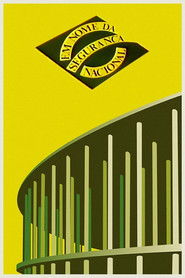detail profile roberto gervitz
Peran Yang Di Mainkan Roberto Gervitz
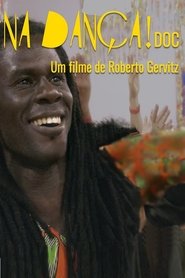 The documentary records the 2nd Na...
The documentary records the 2nd Na...Na Dança! Doc 2020
The documentary records the 2nd Na Dança festival, makes great interviews with its participants and composes an interesting portrait of the city of São Paulo and its immigrants.
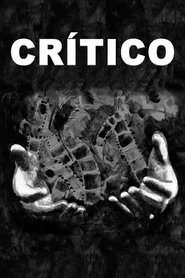 Seventy critics and filmmakers discuss cinema...
Seventy critics and filmmakers discuss cinema...Critic 2008
Seventy critics and filmmakers discuss cinema around the conflict between the artist and the observer, the creator and the critic. Between 1998 and 2007, Kléber Mendonça Filho recorded testimonies about this relationship in Brazil, the United States and Europe, based on his experience as a critic.
 To find the woman of his...
To find the woman of his...Underground Game 2005
To find the woman of his life, man makes a game up: he enters a subway train wagon, picks a woman he likes and waits to see whether she's going to take the same course and connections as he. If she is, he tries to make contact.
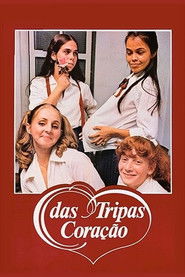 Financial problems in a religious school...
Financial problems in a religious school...Heart and Guts 1982
Financial problems in a religious school for girls force the government to interfere. While waiting in the conference hall to communicate the fact to the school administrators, the intervenor falls asleep and a crazy dream begins, involving teachers, students and strange characters.
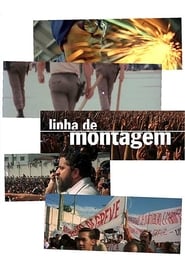 Documentary about the strikes that took...
Documentary about the strikes that took...Linha de Montagem 1982
Documentary about the strikes that took place in São Bernardo do Campo, in the State of São Paulo, Brazil, circa 1979/1980. That moment was of utmost importance, since it revealed a Union leader, Luís Inácio "Lula" da Silva, who would later become President of Brazil. It was also the moment when PT, the Workers' Party, became a relevant political force in Brazil.
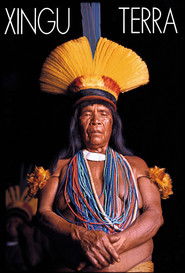 Directed by the photographer Maureen Bisilliat...
Directed by the photographer Maureen Bisilliat...Xingu/Terra 1981
Directed by the photographer Maureen Bisilliat, the documentary portraits the everyday life in the indigenous village of Mehinaku, in Alto Xingu, showing the planting and harvest of cassava, the fishing, the preparation of the annatto ink, the modeling of the domestic ceramics, the division of tasks between men and women, the work at the collective land, the relationship between parents and children, the marriage ceremony, the exchange with other villages and the great celebration of the Yamuricumã party.
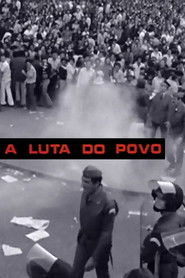 Short documentary on workers movement in...
Short documentary on workers movement in...A Luta do Povo 1980
Short documentary on workers' movement in Brazil in the 1970s, such as the Movement Against Famine, and the policial repression against demonstrators and activists.
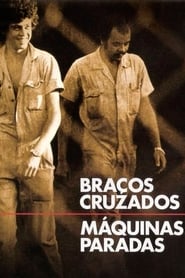 So Paulo May 1978 Three slates compete...
So Paulo May 1978 Three slates compete...Braços Cruzados, Máquinas Paradas 1979
São Paulo, May 1978. Three slates compete for the leadership of the Metalworkers' Union of São Paulo, the largest in Latin America, with 300,000 associate workers, and presided over by a platoon since the military coup of 1964. In the midst of the Union electoral campaign, the first workers' strikes that would change the country began. Braços Cruzados, Máquinas Paradas reveals, in an engaging narrative, the Brazilian trade union structure of fascist inspiration.
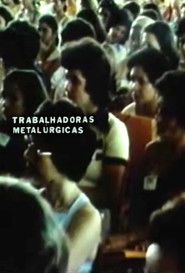 In the late seventies a group...
In the late seventies a group...Women Metalworkers 1978
In the late seventies, a group of Brazilian documentary filmmakers traveled to the ABC region in the suburbs of São Paulo with the purpose of recording a wave of worker strikes taking place in response to the negligence of the increasingly powerful and abusive automotive industry. Documenting striking women metal workers, Olga Futemma and Renato Tapajós’ Trabalhadoras Metalúrgicas is a particularly vigorous work among the films produced during this moment in São Paulo worker history. Scenes filmed during the first Congress of Metallurgical Women of São Bernardo and Diadema in 1978 are intercut with images documenting the appalling working conditions against which the women featured in the congress were striking.

 Hermano is a doctor who plans...
Hermano is a doctor who plans... After diving into a shallow lake...
After diving into a shallow lake...